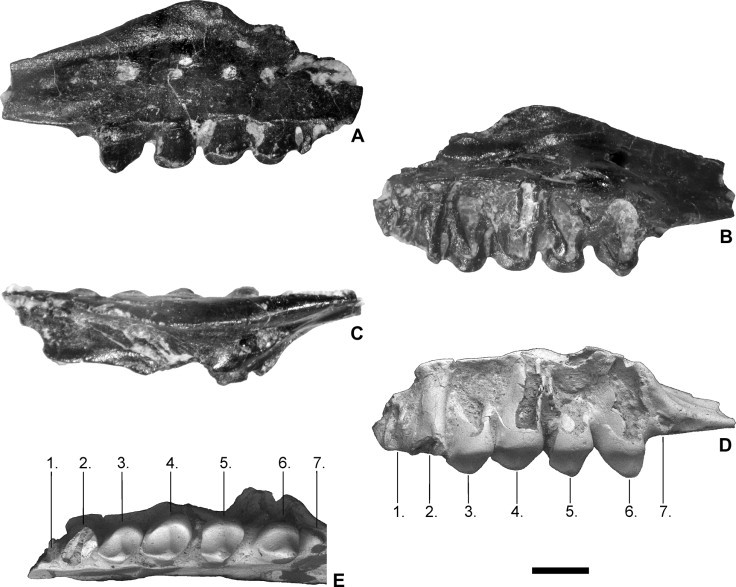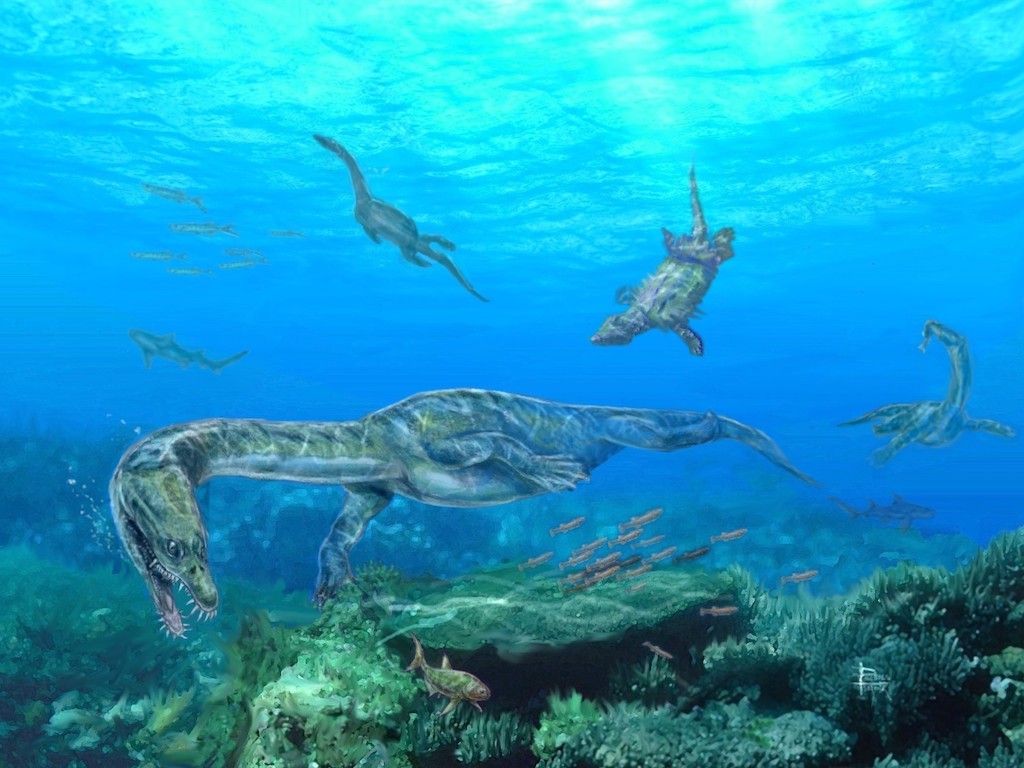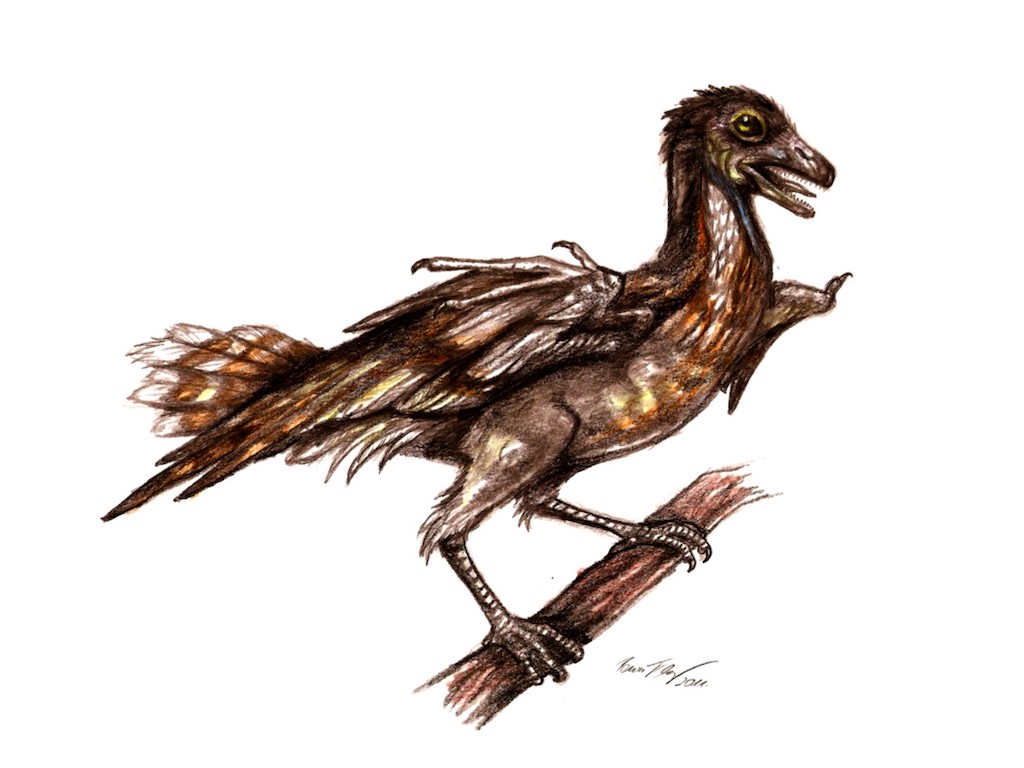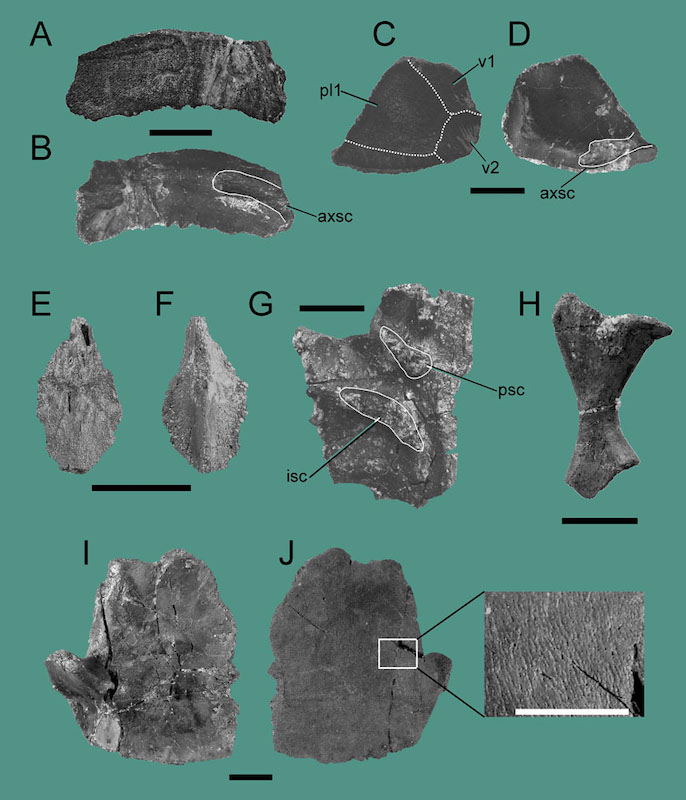
Disortodon
The lizard Distortodon rhomboideus was described by our research group as a new genus and species…

Several skull and mandibular elements from Iharkút are assigned to a midsized crocodilian that is relatively widely considered to be closely related to the common ancestor of modern-day alligators, crocodiles and gharials. Allodaposuchus was a generalized form and superficially resembled a modern alligator or caiman. This group of crocodilians is endemic to the Cretaceous of Europe and they also might be related to Iharkutosuchus even though they don’t seem to be specialized at all. The morphology of the skull suggests that they most likely led a semiaquatic, omnivorous lifestyle, again similarly to alligators. Allodaposuchus has a key role in our understanding of the origin of the major modern-day crocodilian lineages and therefore the material from Iharkút is of great importance.
Unfortunately, the Iharkút form is too fragmentarily known at the moment and it remains unclear how it is related to similar species in Romania, France and Spain. The description of the material from Iharkút is in progress and preliminary research suggests that it is a new species (i.e. previously unknown for science) that was endemic to Iharkút. Interestingly, this species was considerably smaller compared to other species of Allodaposuchus which was either a result of dwarfism or alternatively the Iharkút Allodaposucuhus represents the ancestral, small body size of subsequent larger related forms.

The lizard Distortodon rhomboideus was described by our research group as a new genus and species…

The rock layers of the Middle Triassic Templomhegy Dolomite Member on Somssich Hill (Villány) – which were deposited in a shallow marine environment…

The Iharkút vertebrate locality is among the few places in Europe where the fossils of the very poorly known Cretaceous birds have been also discovered…

These turtles are poorly known and only represented by characteristic isolated shell elements. However, they are more common than the remains of Kallokibotion…